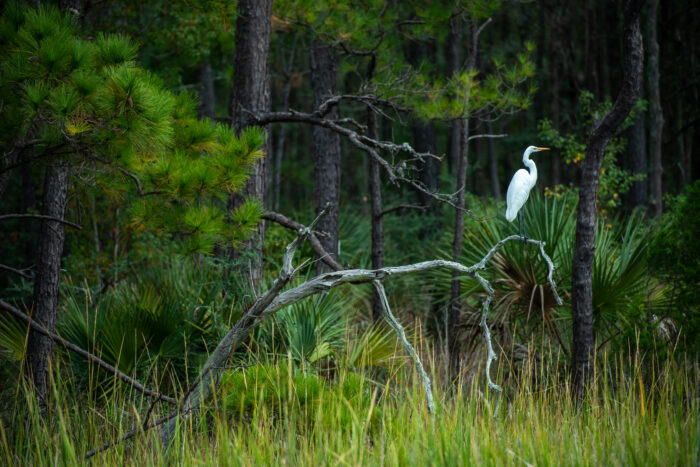Joining the national freshwater challenge
Water touches all parts of our communities and is tied to our way of life in the South.
We are committed to solutions that protect clean water to ensure the health and safety of our communities. That’s why SELC is joining the Biden-Harris administration’s new initiative, The America the Beautiful Freshwater Challenge: A Partnership to Conserve and Restore America’s Rivers, Lakes, Streams, and Wetlands, with a commitment to protect and restore the vital water resources that flow through our cities, towns, and farms.
The South is home to renowned landscapes with rich habitats and biodiverse wildlife that provide our communities with outdoor space for learning, working, and exploring. Our wetlands, lakes, and rivers that fuel the South also filter our drinking water, provide communities with outdoor escapes, and buffer our homes and businesses from rising flood waters.
Our communities need wetlands for protection from flooding, abundance of wildlife — including fish and shellfish — and safe drinking water. With wetlands now at increased risk from pollution and development, we all need to take action to support their protection.
Senior Attorney Kelly Moser, leader of SELC’s Water Program
Wetlands are especially vital because they slow and absorb floodwaters and store and release water that replenishes ground water reservoirs. The South is fortunate to be home to more wetlands than any other region of the nation helping us balance needs for clean drinking water and protection from harsh storm surge. But those water resources that support our communities and beloved landscapes are dwindling – a recent report found that nationwide 670,000 acres of vegetated wetlands have been lost between 2009-2019 to growing development pressure and other drivers. Recently, wetlands lost important federal protections against destruction and pollution after a 2023 Supreme Court decision.

With our water resources at risk, the Biden-Harris administration is setting new national goals for the protection of our freshwater resources:
- Reconnect, restore, and protect 8 million acres of wetlands by 2030, with an emphasis on forested, vegetated, peat soil, brackish, and tidal wetlands; and
- Reconnect, restore, and protect 100,000 miles of our nations’ rivers and streams by 2030, using approaches like removal of impediments and stream bank restoration.
5 ways SELC is working to advance the goals of the Freshwater Challenge
- Protecting iconic wetlands like the Okefenokee Swamp. We are urging Georgia regulators to reject a dangerous plan to dig for minerals on the doorstep of the Okefenokee National Wildlife Refuge, which could threaten the swamp’s water levels and release toxic contaminants into nearby surface and groundwater.
- Advocating for strong state wetlands protections. Thousands of North Carolinians are joining together with SELC to ask that the state legislature restore wetlands protections after it stripped them away, leaving millions of acres of North Carolina wetlands vulnerable to destruction and pollution. SELC also supported executive action in North Carolina to permanently conserve many wetlands and defended against legislative efforts to weaken Tennessee’s wetlands protections.
- Challenging irresponsible development. We are in federal court challenging permits for a 9,000-home development that would destroy wetlands adjacent to the Frances Marion National Forest in South Carolina—with half of the new homes constructed in the floodplain.
- Seeking justice for communities impacted by hog operations’ primitive cesspools. SELC is representing Sampson and Duplin County community groups in North Carolina in a civil rights complaint seeking to achieve protections against the hog industry’s practice of collecting hog feces and urine in giant cesspools and spraying that hog waste in Black and Brown, Latino, and Indigenous communities, contaminating surface and groundwater.
- Stopping industrial chemical pollution at its source. SELC is working with communities in North Carolina, Georgia, Alabama and South Carolina to stop toxic “forever chemicals” pollution at the source so that downstream communities and drinking water are protected. We continue to advocate for stronger national policies and for state agencies to use their existing authority to stop PFAS and other industrial chemical pollution before it gets into drinking water sources.
